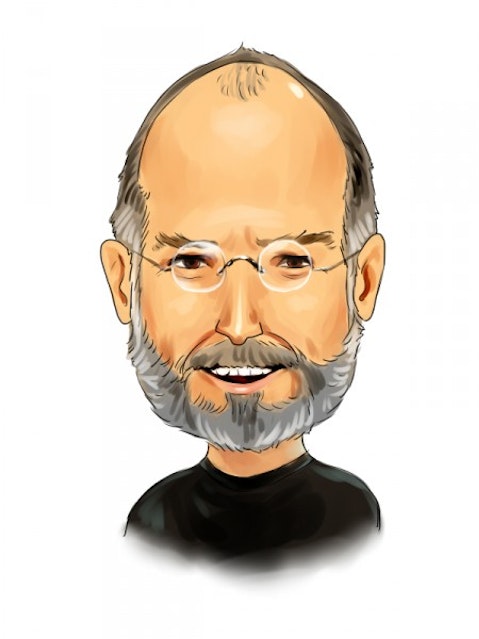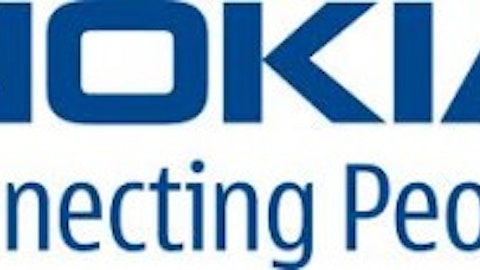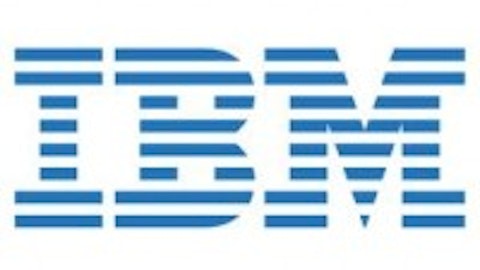When iTunes began, its function was to make money for Apple Inc. (NASDAQ:AAPL) by promoting the sale of iPods. That fortuitous investment also gave consumers entry into the world of Apple Inc. (NASDAQ:AAPL), familiarizing them with the software and generating tremendous momentum when introducing the iPhone.
Interestingly enough, originally Steve Jobs wanted to keep iTunes exclusive to Apple Inc. (NASDAQ:AAPL) products, a move that would have cost the company dearly in its expansion of iProducts.
I’m here to argue, despite the fact that iTunes currently dominates the world of digital music, Apple must set its iTunes music ecosystem free.
Why iTunes is unavailable for Android
Apple Inc. (NASDAQ:AAPL) leverages iTunes to make their products “sticky,” keeping the consumer within Apple’s walls, unable to go elsewhere. I met a young woman on a plane with an iPhone 5, and asked her why she chose to upgrade to the model.
“Because all my music is on iTunes, and choosing the iPhone just made everything so much easier.” Bingo. Point for Apple shareholders.
And according to this article on Forbes, written last October as to why Apple doesn’t allow iTunes anywhere else, “iTunes is not where Apple Inc. (NASDAQ:AAPL) makes its money. Apple makes money from its hardware, not software. Why should Apple reward people who have bought an Android device by making the iTunes ecosystem available to them? By making iTunes available to Android users, Apple would be strengthening a competition’s mobile platform.”
Unfortunately, iTunes grip on digital music is quickly being vaporized.
The competition
Aside of the obvious Google Inc (NASDAQ:GOOG) Music offerings to beef up its Android ecosystem, Apple faces two other major competitors.
Pandora Media Inc (NYSE:P)’s stock has actually increased in value since Apple announced iTunes Radio, designed to mimic Pandora’s streaming radio offering. At present, Pandora is rapidly being adopted into cars, posing a challenge to both Sirius Satellite Radio and terrestrial radio.
Pandora Media Inc (NYSE:P) is a great way to discover new songs and bands, and Apple’s move to combat it through it’s own radio service, despite its anticipated microscopic effect on revenues (0.5% estimated) was absolutely necessary.
Interestingly enough, according to TheStreet.com, for Pandora Media Inc (NYSE:P), “overall listener hours came in at 1.25 billion for June 2013, a 17% increase from 2012, but that’s off from May 2013’s, 1.35 billion hour total. Pandora’s overall share of radio listening also decreased between May and June, dropping modestly from 7.29% to 7.04%.” Does this imply the market is saturated and Apple is arriving very late to the party?
What Apple Inc. (NASDAQ:AAPL) has not yet combated, but likely will, and must do so soon, is Spotify.
As an example – I have a friend who told me he had spent $700 on songs on iTunes in the past two years. Last month, he discovered Spotify where for $9.99 a month you get unlimited music, downloadable, of your choice, and without commercials. He now describes iTunes as “completely unnecessary.” How long before others follow suit with such recommendations?
Why Apple must open iTunes
According to co-founder Steve Wozniak during on Slashdot, “Apple’s real rise from the small market-share Macintosh company to the iProducts of today began with iTunes and the iPod. This turned out to be the second huge business which roughly doubled Apple’s ‘size.’ If you remember, we ported iTunes to Windows. We now addressed 100% of the world’s market with this integrated system (iPod/iTunes), and it began the era of Apple that we are now in. So why don’t we port iTunes to Android? Did something get closed up? I love Apple products and iTunes and wish it were on my Android products too.”
In building a wall around iOS and iTunes, Apple Inc. (NASDAQ:AAPL) keeps its current users inside. Unfortunately, the nature of a competitive marketplace has cut into Apple’s iPhone dominance, and Spotify, Pandora, and Google Inc (NASDAQ:GOOG) are chipping away at iTunes as well.
In making iTunes (and iTunes Radio) available on Android/Windows Phones (Android of course owning the lion’s share of the market), Apple will in fact likely be drawing more users into contact with it than it loses by opening up iTunes, and I say that specifically because I believe that iTunes is currently an antiquated notion, given the alternative of the Spotify and Pandora streaming model. Unless you have a library of thousands of songs on iTunes, it’s more practical, especially in terms of future music purposes to move to a streaming service.
The reason Google Inc (NASDAQ:GOOG) gives away Android for free is it increases the likely-hood of its users interacting and using its other products. As Android expands its presence to developing markets, these up and coming consumers will likely be contributing to Google’s profits long into the future. This is brilliance and long-term vision on Google’s part. I’m hoping Apple follows suit before falling too far behind.
Actionable advice
That being said, I do believe that Tim Cook and Co are at least part of the way there in addressing this glaring problem.
I believe that Apple Inc. (NASDAQ:AAPL)’s valuation at 10 times earnings, and when backing out cash at 7 times earnings, makes it a buy, with much higher upside than down. As an Apple shareholder I just hope that, like Steve Jobs did with the iPod when he introduced the iPhone as a music player and phone combined, that they are willing to allow a current profit center to be cannibalized, so they don’t get left in the dust by the competition who embrace the new model.
The article Apple Needs to Lose or Open iTunes originally appeared on Fool.com and is written by Margie Nemcick-Cruz.
Margie Nemcick-Cruz owns shares of Apple and Google. The Motley Fool recommends Apple, Google, and Pandora Media (NYSE:P). The Motley Fool owns shares of Apple and Google. Margie is a member of The Motley Fool Blog Network — entries represent the personal opinion of the blogger and are not formally edited.
Copyright © 1995 – 2013 The Motley Fool, LLC. All rights reserved. The Motley Fool has a disclosure policy.






